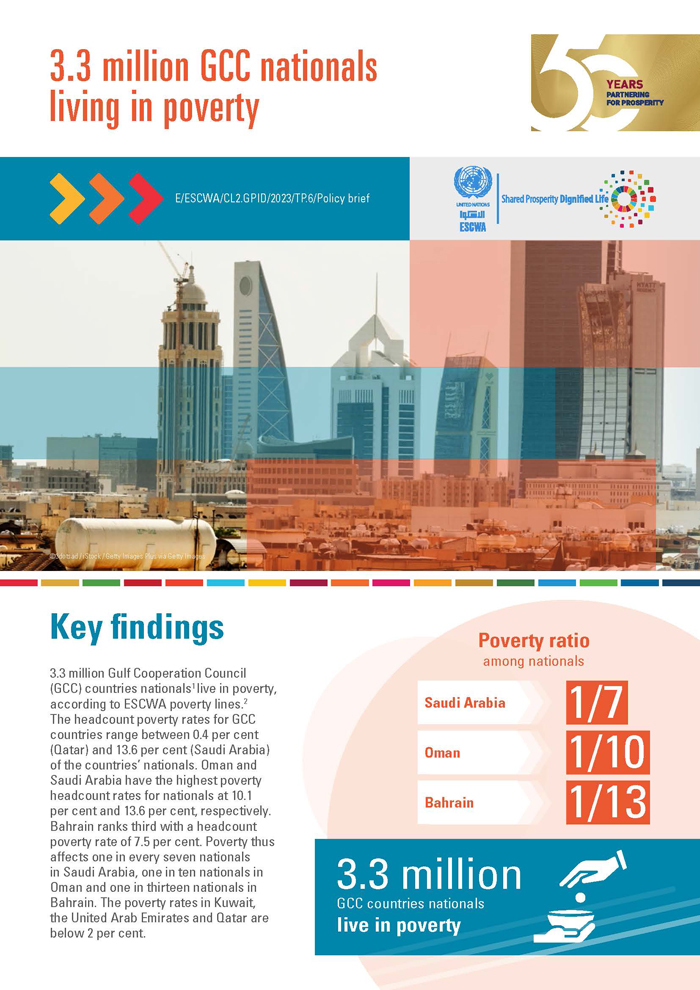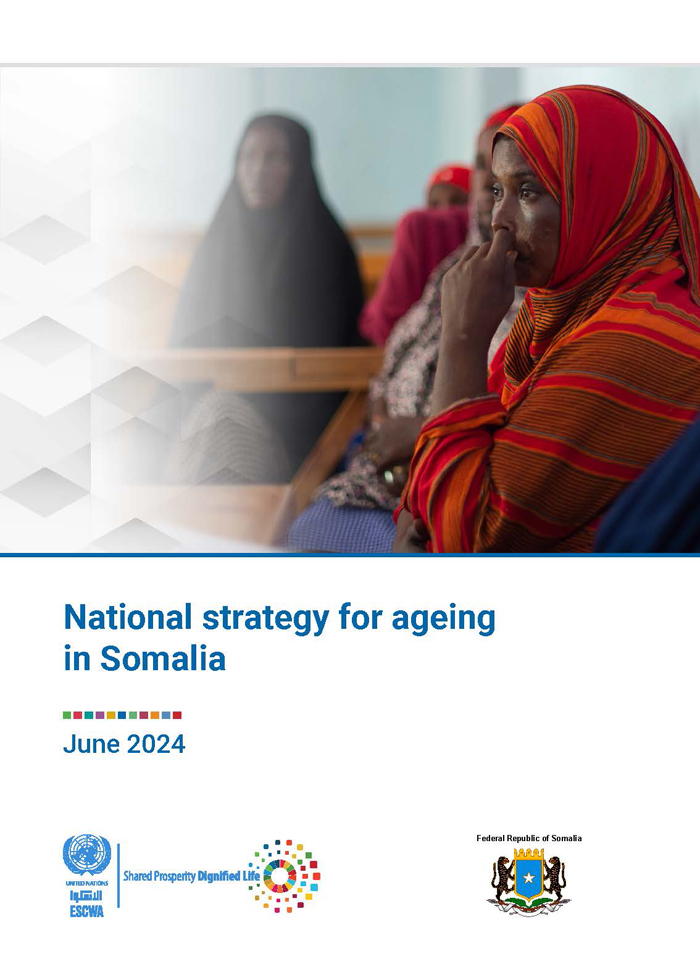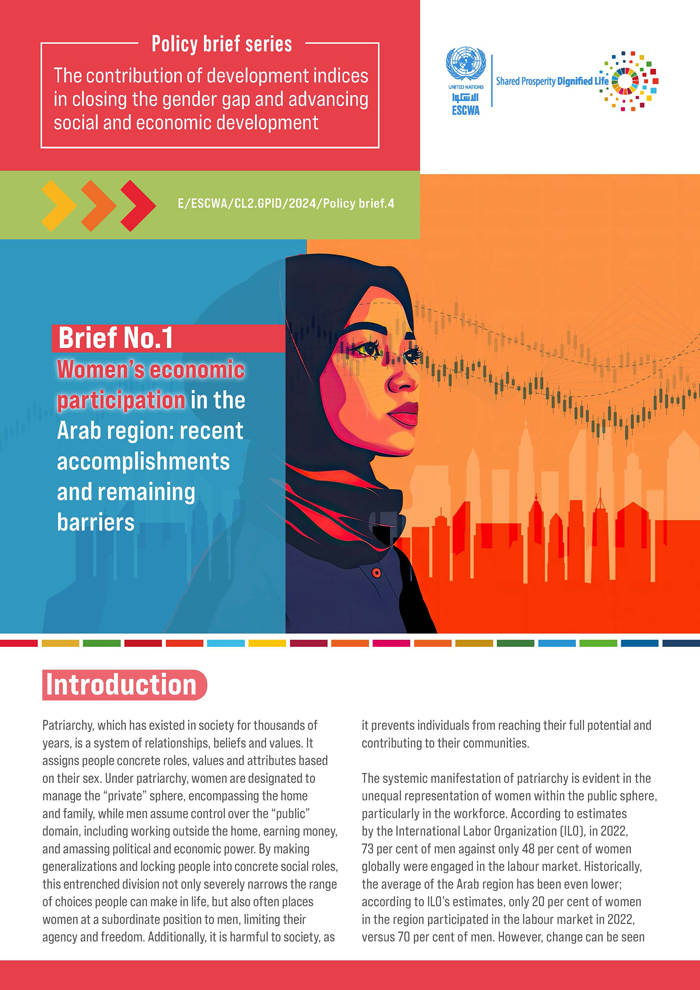
ESCWA Publication: E/ESCWA/CL2.GPID/2023/TP.6/POLICY BRIEF
Country: Kingdom of Bahrain, State of Kuwait, Sultanate of Oman, State of Qatar, Kingdom of Saudi Arabia, United Arab Emirates
Publication Type: Policy briefs
Cluster: Gender Justice, Population and Inclusive Development
Focus Area: Inclusive development, Macroeconomics, Natural resource sustainability, Population dynamics & migration, Statistics
Initiatives: Economic Statistics and National Accounts, Financial & macroeconomic statistics for National accounts
SDGs: Goal 1: No Poverty, Goal 8: Decent Work and Economic Growth, Goal 11: Sustainable Cities and Communities, Goal 12: Responsible Production and Consumption
Keywords: Poverty, Gulf states, Economic development, Population, Government policy, Social security, Household expenditures, Economic conditions, Social conditions
3.3 million GCC nationals living in poverty
May 2023
3.3 million Gulf Cooperation Council (GCC) countries nationals live in poverty, according to ESCWA poverty lines. The headcount poverty rates for GCC countries range between 0.4 per cent (Qatar) and 13.6 per cent (Saudi Arabia) of the countries’ nationals. Oman and Saudi Arabia have the highest poverty headcount rates for nationals at 10.1 per cent and 13.6 per cent, respectively. Bahrain ranks third with a headcount poverty rate of 7.5 per cent. Poverty thus affects one in every seven nationals in Saudi Arabia, one in ten nationals in Oman and one in thirteen nationals in Bahrain. The poverty rates in Kuwait, the United Arab Emirates and Qatar are below 2 per cent.
Poverty in most GCC countries has declined since 2010; 528,000 GCC citizens have been lifted from poverty. In Saudi Arabia alone, poverty fell from 18.23 per cent in 2010 to 13.56 per cent in 2021, accounting for the bulk of poverty reduction in the GCC region. To reduce poverty, policy reforms are needed to foster an equitable tax system, improve the targeting of social protection transfer schemes, and reform land allocation and public procurement policies. Investing in citizens’ skills should also be a priority. These reforms will allow a broader share of the population to benefit from socioeconomic opportunities.
Related content
Inclusive development
, Macroeconomics
, Natural resource sustainability
, Population dynamics & migration
, Statistics
,
3.3 million Gulf Cooperation Council (GCC) countries nationals live in poverty, according to ESCWA poverty lines. The headcount poverty rates for GCC countries range between 0.4 per cent (Qatar) and 13.6 per cent (Saudi Arabia) of the countries’ nationals. Oman and Saudi Arabia have the highest poverty headcount rates for nationals at 10.1 per cent and 13.6 per cent, respectively. Bahrain ranks third with a headcount poverty rate of 7.5 per cent. Poverty thus affects one in every seven nationals in Saudi Arabia, one in ten nationals in Oman and one in thirteen nationals in Bahrain. The poverty rates in Kuwait, the United Arab Emirates and Qatar are below 2 per cent.
Poverty in most GCC countries has declined since 2010; 528,000 GCC citizens have been lifted from poverty. In Saudi Arabia alone, poverty fell from 18.23 per cent in 2010 to 13.56 per cent in 2021, accounting for the bulk of poverty reduction in the GCC region. To reduce poverty, policy reforms are needed to foster an equitable tax system, improve the targeting of social protection transfer schemes, and reform land allocation and public procurement policies. Investing in citizens’ skills should also be a priority. These reforms will allow a broader share of the population to benefit from socioeconomic opportunities.



